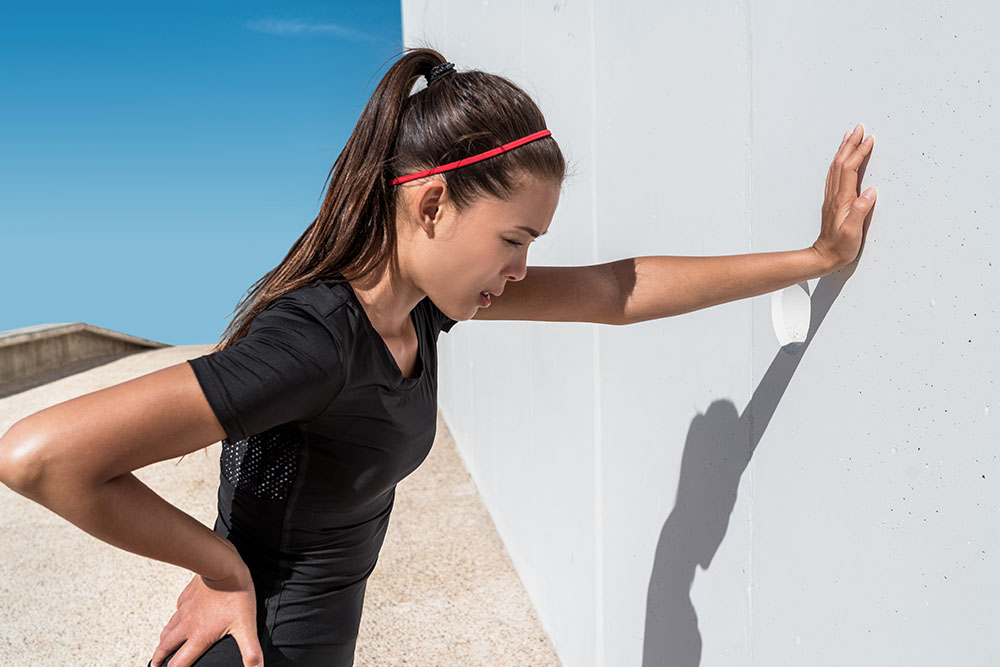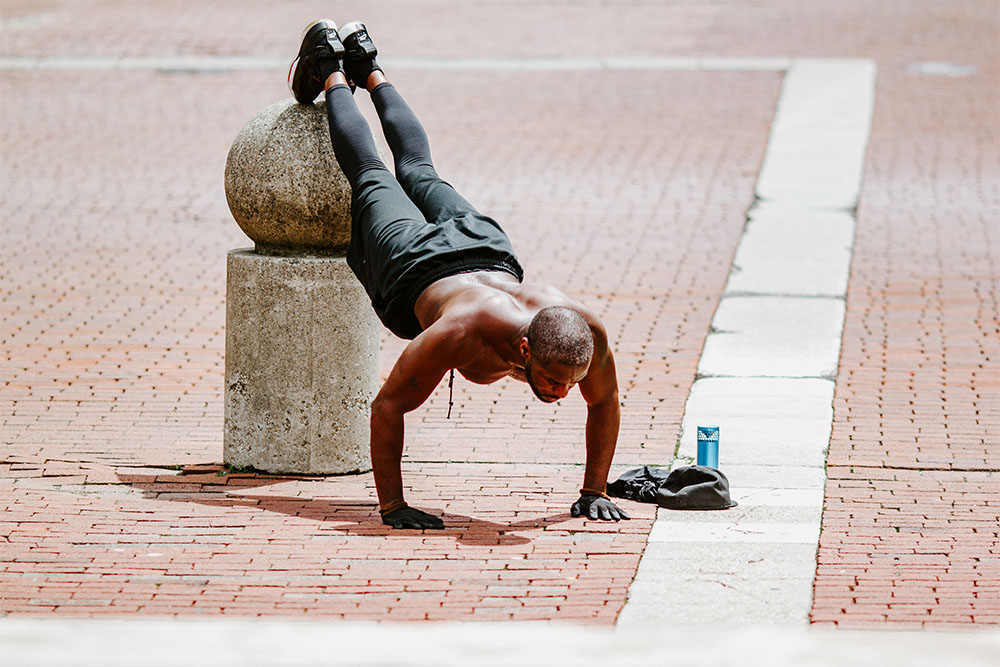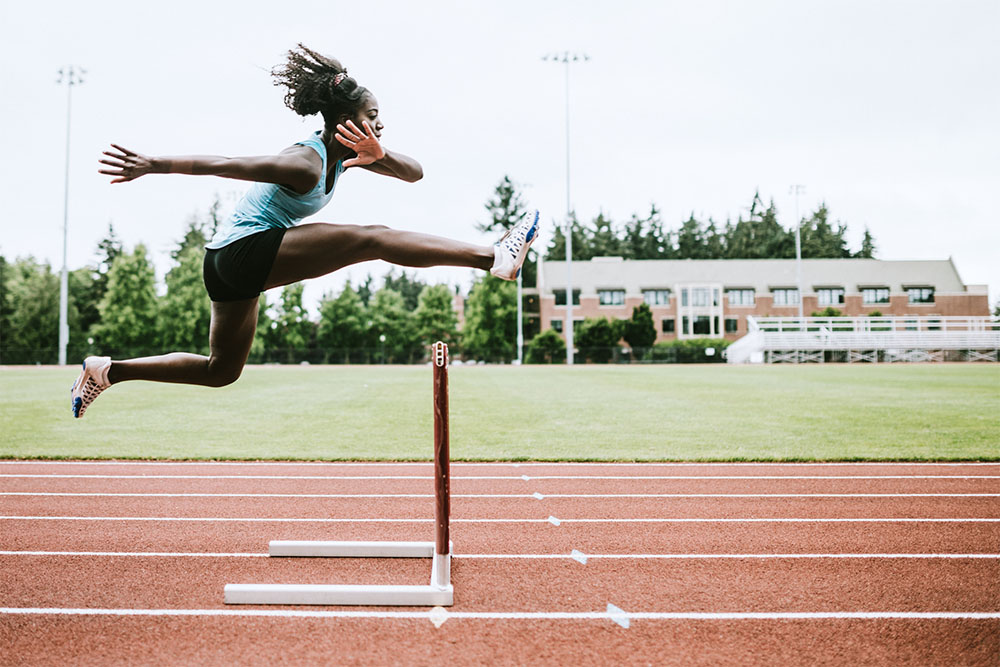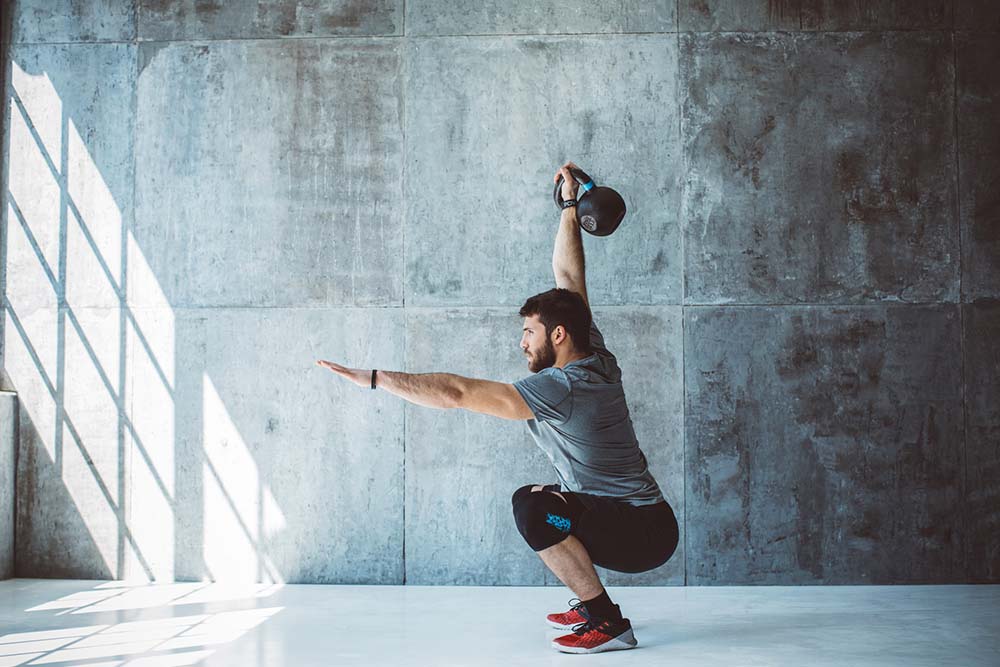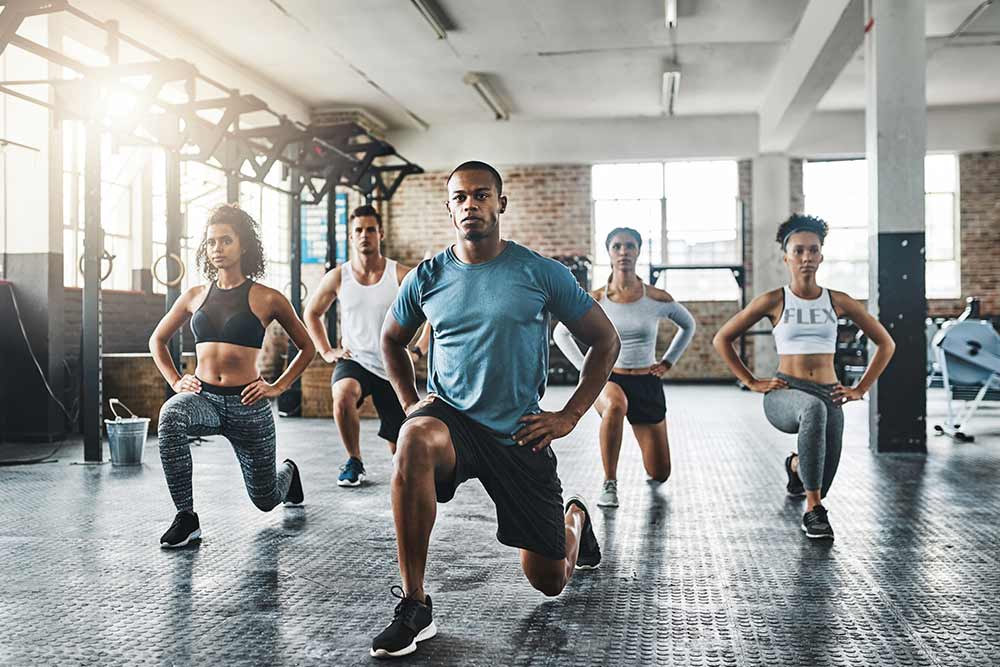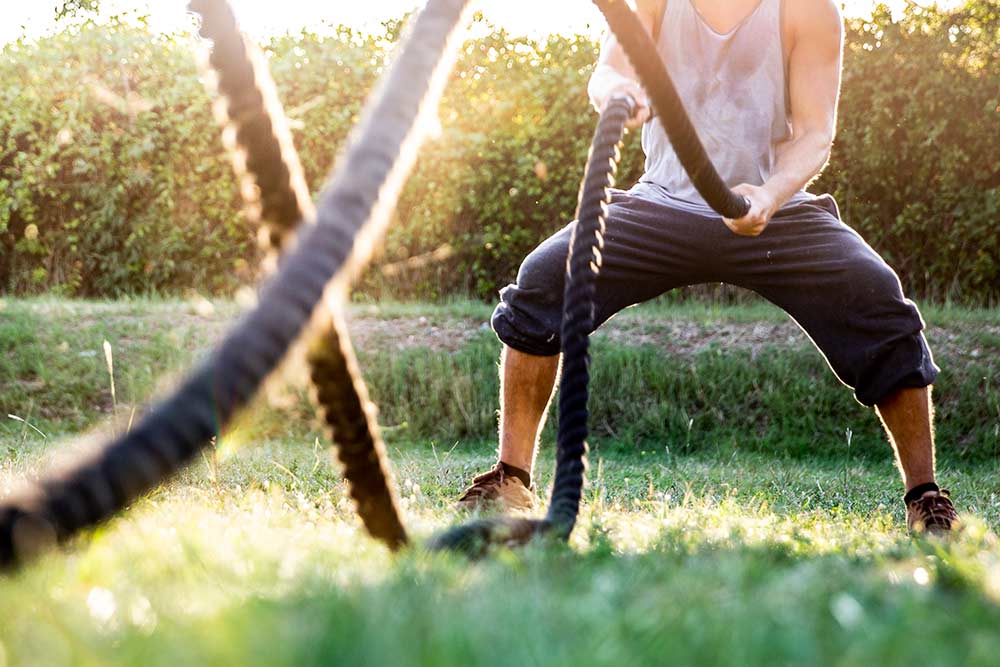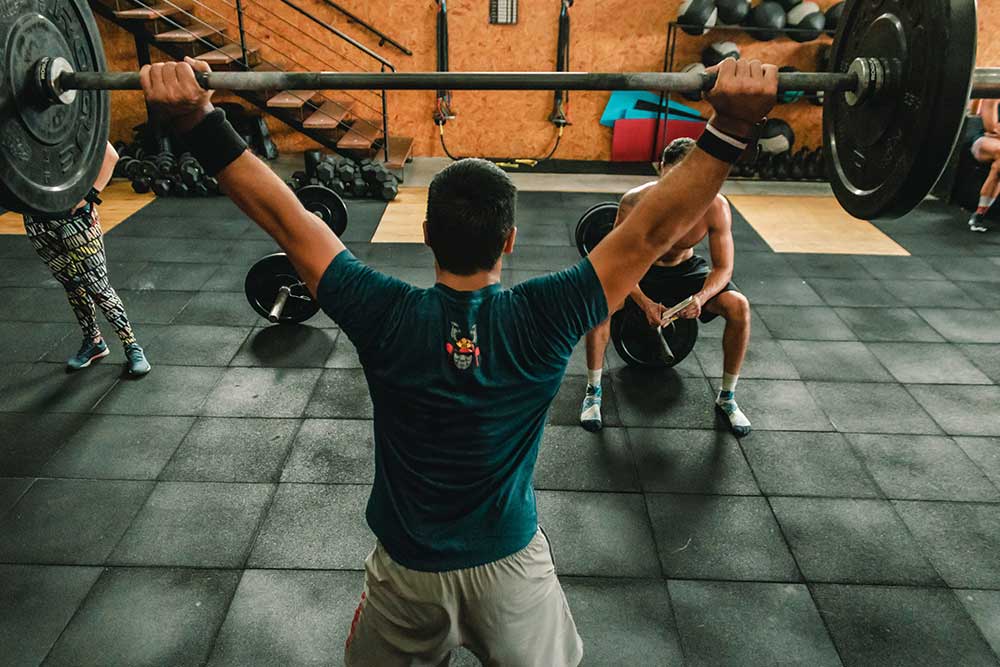Cognitive Sports Training: How Can It Improve Performance?

Hunter Bennett
Competing and performing in sport requires a huge amount of time, effort, and physical capacity. To perform at a high level, you need the ability to express strength, speed, and power, and maintain a high degree of technical proficiency. It is honestly a whole lot more complex than simply just playing a sport.
Now, most of us know that the bulk of these qualities are developed through the act of training in an entirely physical sense. Practicing skill development on the field or court and building physical capabilities on the track or in the gym.
However, there is a growing body of evidence to suggest that cognitive sports training can also play a role in sports performance enhancement.
What is cognitive sports training?
For the most part, cognitive sports training is still a developing area of research. While it has been utilized in practice for several years, its applications have been varied, with different degrees of effectiveness discussed (Walton, 2018).
With this in mind, cognitive sports training encompasses a broad range of mental tasks designed to improve various aspects’ of athletic performance.
These mental tasks have been used to improve upon the various psychological factors known to contribute to successful sports performance, such as mindset, self-efficacy, self-confidence, motivation, and mental toughness. They have also been used extensively to help cope with various mental challenges, such as stress and pre-competition anxiety, which can negatively impact performance.
Within this, cognitive sports training has also been used to enhance skill development and skill execution, thus improving technical proficiency in various sporting situations.
How does cognitive training affect athletic performance?
When it comes to improving athletic performance through cognitive sports training, the way in which it works is highly dependant on the modality of cognitive training that you choose to implement.
There are currently 3 main types of cognitive training that appear regularly within the literature:
- Mental Imagery
- Self-talk
- Mindfulness and meditation
Related Article: Becoming an Unbreakable Athlete
Mental Imagery
Mental imagery is often defined as the mental execution of a movement, motor act, or physical action, without any actual physical movement or muscle activation.
In this manner, it represents an effective cognitive tool that can be strategically used by athletes to enhance their capacity to perform motor skills specific to their chosen sport or event (Montuori, 2018).
You see, neuroimaging has shown that when using this technique imagined movements and the actual movements they replicate are completely equivalent in the sense they share the exact same neural circuitry. As a result, by improving the efficiency of those skill-related neural pathways, mental imagery can cause subsequent improvements in movement efficiency and skill development, thus improving athletic performance (Slimani, 2016).
Self-Talk
Self-talk is a unique cognitive strategy that can be defined as performing an act of recognizable communication, articulated either out loud or as a mental voice inside one’s head, that is addressed to the self with interpretative elements associated to its content.
In short, it is the process of talking to oneself to reinforce technique and change the mood, while also enhancing confidence, self-belief, motivation, and mental resilience.
With this in mind, the application of self-talk in athletic populations has been shown to facilitate and accelerate the learning of new skills and game plans, reduce performance-related anxiety, improve mood and training dedication, and develop motivation and resilience (Hatzigeorgiadis, 2011). Through these interactions, it has been shown to be a powerful method of cognitive sports training.
Mindfulness and Meditation
While research suggests that the vast majority of successful athletes would be considered psychologically healthy, it is still extremely common for them to experience a wide range of undesirable internal processes.
These can include competition anxiety, negative emotions, fear of failure, and dysfunctional thinking – all of which may influence performance negatively (Birrer, 2012).
With this in mind, both mindfulness and meditation are being increasingly used in sporting settings to improve mood, increase emotional well-being, stave off feelings of depression and anxiety, and increase sensations of confidence and self-worth.
As a result, the practice of each of these cognitive training methods has been shown to indirectly improve sports performance by positively influencing these key cognitive variables (Josefsson, 2017), while also having a positive effect on decision-making capabilities and cognitive processing (Sun, 2015).
Pretty amazing really!
Do sports improve cognitive function?
Taking all of this into consideration, it is also important to note that this is not simply a one-way street.
In fact, the act of performing sport has been shown to have positive effects on cognitive function – and that those effects are comparable to the impact that cognitive training can have on sports performance (Gomez‐Pinilla, 2013).
Which is truly amazing when you take a second to think about it. Participating in sport across the lifespan has been shown to improve cognitive capabilities across that lifespan, limiting age-related declines in cognitive function, and even sparing age related loss of brain tissue.
Additionally, maintaining a high degree of fitness through sport has been shown to enhance the efficiency of the neural pathways responsible for cognitive control, memory, and attention.
As a result, those individuals who more frequently participate in sporting activities much more efficient at taking in and processing environmental stimuli and other types of perceived information. – in which fewer mental resources are required to monitor their own actions.
This has been shown to have positive implications for decision making and problem-solving capabilities, while also encouraging improvements in mood, enhancing 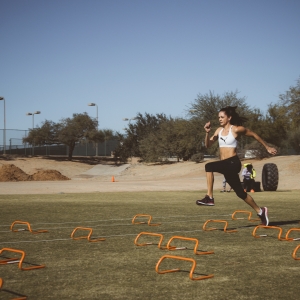 higher order mental processing, and increasing attention capacity.
higher order mental processing, and increasing attention capacity.
In short, sport improves nearly every aspect of cognitive health and function.
Related Article: Breathing Exercises for Health & Performance
What exercise is best for improving cognitive function?
Now, this is where the good news really comes rolling in.
When it comes to exercising for the sole purpose of improving cognitive function and mental health, it really doesn’t seem to matter what you do, as long as you do something.
In this manner, aerobic exercise, high-intensity interval training, and weight training have all been shown to cause large improvements in cognitive capabilities, attention capacity, short- and long-term memory, and of course, problem-solving skills (Alghadir, 2016; Chang, 2012; Costigan, 2016).
They also appear to have similar merit when it comes to staving off age-related declines in cognitive function, reducing the risk to developing anxiety and depression, and improving mood (Stonerock, 2015; Gordon, 2018).
As a result, I would strongly recommend that you do your best to adhere to the recommended activity guidelines outlined by the World Health Organisation (WHO) (Tremblay, 2011).
These guys recommend that adults get in 150 minutes of moderate-intensity aerobic activity per week, in conjunction with an additional two sessions of resistance training per week.
By adhering to these guidelines, you will not only receive all the cognitive and mental benefits associated with exercise but also guarantee that you will get all the physical benefits as well.
Take Home Message
Cognitive sports training is fast become an essential component of athletic development. With the ability to improve skill performance, enhance mood and mental resilience, and even increase decision-making capabilities, it should play a major part in any athletes training regime.
In conjunction with the positive effects that sport can have on cognitive and mental capabilities, the combination of physical and cognitive training modalities appears essential to maximize the development of strong, powerful, and healthy athletes.
So, what are you waiting for? Start implementing them as soon as possible and reap the rewards!
References
Walton, Courtney C., et al. “The potential role for cognitive training in sport: More research needed.” Frontiers in Psychology 9 (2018).
Montuori, Simone, et al. “Functional Role of Internal and External Visual Imagery: Preliminary Evidences from Pilates.” Neural plasticity 2018 (2018).
Slimani, Maamer, et al. “Do cognitive training strategies improve motor and positive psychological skills development in soccer players? Insights from a systematic review.” Journal of sports sciences 34.24 (2016): 2338-2349.
Hatzigeorgiadis, Antonis, et al. “Self-talk and sports performance: A meta-analysis.” Perspectives on Psychological Science 6.4 (2011): 348-356.
Birrer, Daniel, Philipp Röthlin, and Gareth Morgan. “Mindfulness to enhance athletic performance: Theoretical considerations and possible impact mechanisms.” Mindfulness 3.3 (2012): 235-246.
Josefsson, Torbjörn, et al. “Mindfulness mechanisms in sports: Mediating effects of rumination and emotion regulation on sport-specific coping.” Mindfulness 8.5 (2017): 1354-1363.
Sun, Sai, et al. “Calm and smart? A selective review of meditation effects on decision making.” Frontiers in psychology 6 (2015): 1059.
Gomez‐Pinilla, Fernando, and Charles Hillman. “The influence of exercise on cognitive abilities.” Comprehensive Physiology 3.1 (2013): 403-428.
Alghadir, Ahmad H., Sami A. Gabr, and Einas S. Al-Eisa. “Effects of moderate aerobic exercise on cognitive abilities and redox state biomarkers in older adults.” Oxidative medicine and cellular longevity 2016 (2016).
Chang, Yu-Kai, et al. “Effect of resistance-exercise training on cognitive function in healthy older adults: a review.” Journal of aging and physical activity 20.4 (2012): 497-517.
Costigan, Sarah A., et al. “High-intensity interval training for cognitive and mental health in adolescents.” Medicine and science in sports and exercise 48.10 (2016): 1985-1993.
Stonerock, Gregory L., et al. “Exercise as treatment for anxiety: systematic review and analysis.” Annals of behavioral medicine 49.4 (2015): 542-556.
Gordon, Brett R., et al. “Association of Efficacy of Resistance Exercise Training With Depressive Symptoms: Meta-analysis and Meta-regression Analysis of Randomized Clinical Trials.” JAMA psychiatry 75.6 (2018): 566-576.
Tremblay, Mark S., et al. “New Canadian physical activity guidelines.” Applied physiology, nutrition, and metabolism 36.1 (2011): 36-46.
You Might Like:


